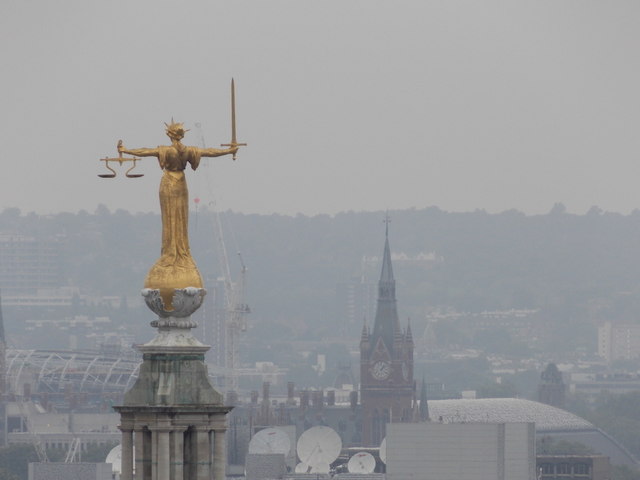We bring you the updates for last week. Hope it updates you with all the news from legal world.
15
December 2014
The
Bombay High Court refused to entertain a Writ filed by an advocate challenging
the imposition of service tax on advocates. So the business clients of individual
lawyers and law firms will continue to pay service tax as mandated by the
Finance Act.
16
December 2014
In the
case of Italian Marines who are accused of killing two Indian fishermen, the
Supreme Court denied the plea of one Italian Marine to extend the stay in Italy
on health grounds and the plea of the other Marine to travel to Italy for
Christmas. The Court held that they want the system to work and that the relief
cannot be granted even though the trial has not commenced. Therefore, the
accused must come to India and the charge-sheet be filed.
17 December
2014
The
Delhi High Court which had earlier passed an ex-parte ad-interim injunction
against the Chinese manufacturer, Xiaomi, allowed the company to sell and
import handsets which have chipsets of Qualcomm Inc., till 5 February 2015.
Xiaomi argued that Erricsson had suppressed the facts to obtain an injunction.
Qualcomm has a license from Erricsson and therefore the license does not make
Xiaomi an infringer of Ericsson’s patent rights.
The
Central Information Commission (CIC) on 17 December ordered that information
relating to the death of the former Chief Justice of India J S Verma be
disclosed to RTI activist Mr. S C Agrawal. The Commissioner, M Sridhar
Acharyulu said, “Such letters (documents) from eminent citizens from all walks
of life on death of a devoted and honest jurist who spent his post-retirement
life in a rented house is indeed a matter of serious concern”.
18 December
2014
The
Supreme Court bench has extended the former Chief Minister of Tamil Nadu J. Jayalalthaa’s
bail by 4 months and directed the Karnataka High Court to constitute a special
bench to hear her appeal expeditiously and decide it within 3 months, till 18
April 2015. The former CM challenged her conviction in Karnataka High Court in
a ‘Disproportionate Assets Case’ after being found guilty.
19 December
2014
Three
judge bench of the Supreme Court dismissed the appeals in relation to the Coal
Ordinance. The deadline to pay the penalty is 31 December which was
marked from 24 September judgment in which the 214 of the 218 coal blocks
allocations was quashed.
22 December
2014
The
Allahabad High Court dismissed a batch of Writ Petitions which were filed
praying for protection as a married couple as they had tied the knot after the
girls got their religion converted from Hindu to Islam and then performed Nikah.
The court observed that “Conversion to
another religion basically requires change of faith and belief of personal
relations of a major individual of sound mind by his free will, with what
he/she regards as cosmos, his/her Make or Creator, which he/she believes,
regulates the existence of insentient beings and the forces of Universe.”
24 December
2014
The
Department of Industrial Policy and Promotion (DIPP) has released the 1st
draft on the National IPR Policy submitted by the ‘Think Tank’ chaired by
Justice Prabha Sridevan. The draft policy can be accessed here.
26 December
2014
The
Delhi High Court issued a notice to RBI on the decision to impose a limit of five
transactions per month from the customers’ own bank ATM and charging Rs. 20/-
per transaction beyond it. RBI had also imposed a limit of three transactions
per month from ATMs of other banks, located in the six metro centres- Mumbai,
New Delhi, Chennai, Kolkata, Bengaluru and Hyderabad. During the hearing, the
court said, “You (banks) are unnecessary taxing your account holders.” The
response has been sought by 18 February 2015.
The
Delhi High Court distinguished between Uber and Ola cabs and refused to give a
similar order in favor or Uber. Ola was given relief as they are only a
technology platform and not a radio taxi operator. The court observed that ‘You (Uber) take money from customers and
give it to drivers. So you are providing the service.’ By the virtue of
December 8 Government Order, Uber had been effectively banned in India.
We hope that this summarizes the News from 15th to 27th December . Your comments and suggestions are welcomed.
Until next post of weekly News updates.
Wishing you all a very delightful and successful New Year.
Manish Kumar, (3rd Year student of IIT Kharagpur Law School)
Disclaimer: This blog or any post thereof
is not to be considered to be in any way associated with the official stand of
IIT kharagpur or RGSOIPL on the issues being discussed in the said post. The
opinions on the blog are the authors own and should not be considered as legal
advice.















